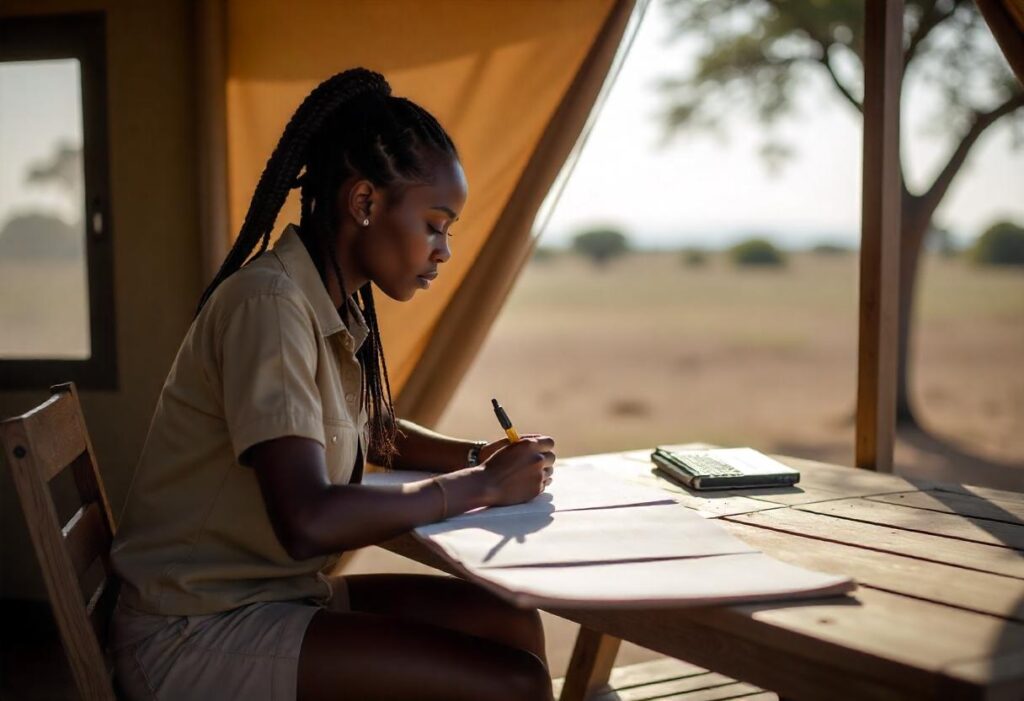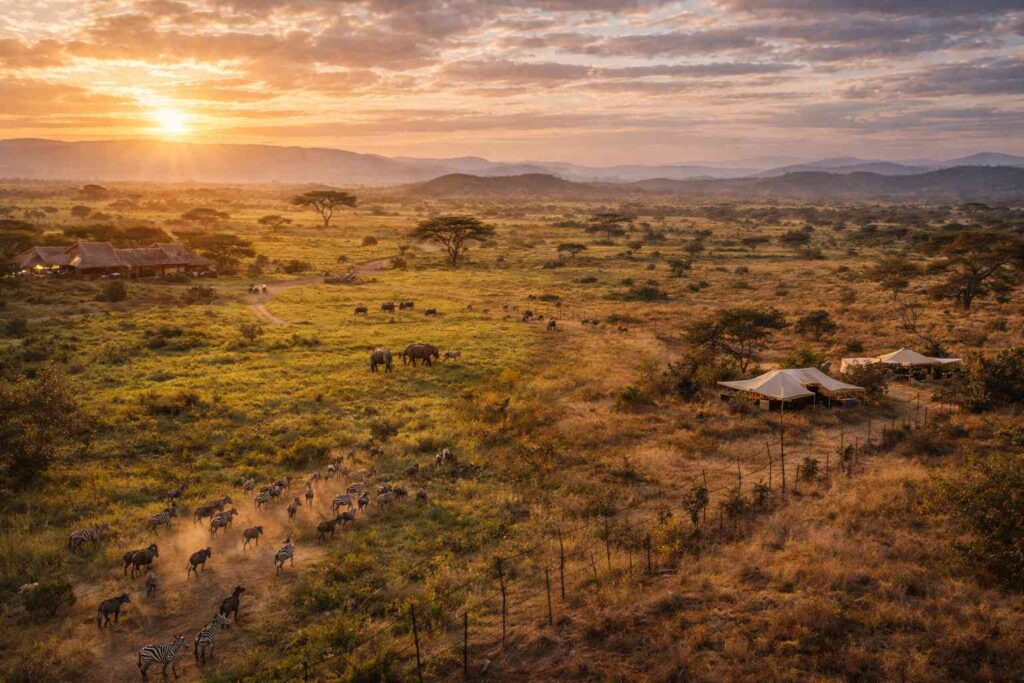Planning an African safari is one of the most exciting parts of your travel journey—but it also comes with a big question: Should you book through a tour operator or plan it all yourself? Each option has its benefits and drawbacks, depending on your experience, budget, and how much time you’re willing to invest in logistics.
This guide breaks down both approaches to help you make the best decision for your adventure.
Booking through a safari tour operator
What does a tour operator do?
Tour operators are companies or individuals who specialize in designing, booking, and managing safari itineraries. They handle accommodations, transfers, park permits, guides, and sometimes even flights.
Pros of booking with a tour operator
- Expertise and local knowledge: Operators often have deep insight into the regions they serve, from wildlife movements to the best off-the-radar lodges.
- Convenience: You don’t have to coordinate multiple suppliers, compare park fees, or navigate local transport options.
- Safety and support: In case something goes wrong, a local team is usually on the ground to assist.
- Exclusive access: Many operators have partnerships with camps and lodges not available to the public directly.
Cons of booking with a tour operator
- Cost: Operators charge for their service and sometimes use premium accommodations, which can increase your budget.
- Less flexibility: Pre-designed packages may leave little room for customizations unless you choose a tailor-made tour.
- Trust issues: Not all operators are equal—some are unlicensed or offer poor service. Doing research is critical.
Planning your own safari (DIY approach)
What does DIY planning involve?
A DIY safari means you’re booking everything independently—from flights and car rentals to national park fees and lodge stays. This option gives you full control of your trip but also requires much more effort.
Pros of DIY safari planning
- Budget control: You can prioritize spending where it matters most and choose value-for-money accommodations.
- Freedom and flexibility: Want to stay longer in one park? Change your mind last minute? It’s easier to do when you’re in charge.
- Personal satisfaction: For experienced travelers, building your own itinerary can be a rewarding experience.
Cons of planning it yourself
- Time-consuming: Researching all the logistics, distances, regulations, and suppliers can be overwhelming.
- Hidden costs: Booking platforms often leave out park fees, transfer costs, or fuel—expenses that add up.
- Risk factor: Without a local network, you may face unexpected challenges like road closures or last-minute cancellations.
When to choose a tour operator
Booking through a safari specialist is ideal if:
- It’s your first safari and you want a smooth, stress-free experience.
- You’re short on time and can’t spend weeks planning.
- You’re visiting multiple countries or parks with complex logistics.
- You want to access exclusive lodges or private reserves.
When DIY might be the right choice
Planning independently may work better if:
- You’ve traveled in Africa before and understand the local infrastructure.
- You’re on a tight budget and can be flexible with dates or accommodations.
- You enjoy trip planning and aren’t intimidated by complex logistics.
A hybrid approach: Best of both worlds?
Some travelers opt for a hybrid method: booking flights and major lodges themselves, but using a local operator for transfers, guides, or park permits. This allows more control without sacrificing the benefits of local expertise.
Final thoughts: There’s no one-size-fits-all
Whether you book with a tour operator or go full DIY, what matters most is choosing the approach that matches your travel style, comfort level, and expectations. Safaris are not just vacations—they’re once-in-a-lifetime experiences, and how you book can shape that adventure.
FAQs
A safari tour operator designs and manages the entire safari experience on the ground, while a travel agent typically sells existing packages and may not have in-depth local knowledge.
It can be cheaper to book directly, especially if you’re flexible and have time to research. However, tour operators may offer better value through bundled services and insider access.
Yes, DIY safari planning is possible, especially in self-drive-friendly countries like South Africa or Namibia. But it requires extensive research and careful coordination.
Tour operators provide expert advice, handle complex logistics, ensure safety, and often have access to exclusive lodges or experiences not available to individual travelers.
A tour operator is ideal for first-time safari-goers, travelers visiting multiple destinations, or anyone looking for a seamless, well-supported trip.






